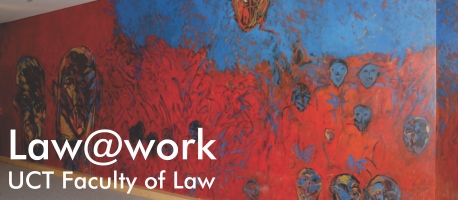
This course explores the international criminal justice system and how it responds to the world’s most serious crimes — genocide, crimes against humanity, and war crimes. It examines the origins and evolution of international criminal law, the operation of tribunals such as the International Criminal Court, and the legal, political, and ethical questions surrounding accountability in times of war and atrocities.
Participants will gain an understanding of key substantive and procedural principles in international criminal law, including jurisdiction, modes of liability, defences, and the treatment of gender-based crimes, as well as contemporary debates around amnesty, politics, and transitional justice.
Join us for a fifteen-hour course, held over five days.
When and where?
22 to 26 June 2026, 9:00 to 12:00 SAST
This course will be held remotely, most likely on Zoom - exact details will be sent to registered participants a few days before the course.
Course outline
Atrocities such as genocide, crimes against humanity, and war crimes tear at the fabric of humanity. This course examines how international criminal law has evolved as a response — defining and prosecuting such crimes, and establishing mechanisms to hold individuals criminally responsible.
Through detailed discussion and case studies, participants will gain a solid grounding in the principles and institutions of international criminal law. The course will unpack the historical development of the field, its core crimes, and the complex legal and political questions that arise when law meets the realities of war, power, and justice.
Using landmark cases and contemporary examples — from Nuremberg to Rwanda, the Balkans, and beyond — the course also probes current issues such as gender justice, universal jurisdiction, and the tensions between accountability and peace.
Who will benefit from this course?
This course is designed for lawyers, policymakers, academics and practitioners working in or alongside the fields of international law, human rights, humanitarian affairs, and transitional justice, as well as those seeking to understand how international criminal law operates in practice.
Presenter
Dr Orly Stern is a human rights lawyer, researcher and consultant, with two decades of experience working across the African continent. Orly has consulted for international organizations, companies, governments, research institutions and NGOs, and has published extensively in her field.
Orly holds a PhD in international humanitarian law from London School of Economics, and a Masters in international human rights law from Harvard Law School. She has served as a visiting fellow of practice with the Oxford Institute for Ethics, Law and Armed Conflict, Blavatnik School of Government, Oxford University, and has held a senior fellowship with the Harvard Humanitarian Initiative, Harvard School for Public Health. She has taught international criminal law at the University of Cape Town.
Her book, Gender, Conflict and International Humanitarian Law: A Critique of the Principle of Distinction, was awarded the International Committee of the Red Cross’ inaugural prize for best published work on international humanitarian law in Africa. Her most recent book on Women and War Economies was published in April 2025.
How much?
R8,250 per person
Certificate
A digital certificate of attendance from UCT will be issued to those who attend the full course.
Please note that the digital certificate can only be viewed on a secure portal. It cannot be downloaded or printed. You will have the option of ordering a hard copy of the certificate at your own cost, including the cost of the courier fee. More information is available here.
No certificate will be issued without the full course fee having been received. Please allow up to three weeks after the end of the course for certificates to be processed.
How to sign up
Complete and submit the registration form. You will then be given the payment information. Please note that registrations will not be considered complete until payment has been made.
One or two days before the course, we will send you the Zoom link. You will need to register and use a password to access the course.
Registrations close three days before the course starts.
Download the brochure.
You may also be interested in:
- Business and human rights
International humanitarian law and the protection of civilians in armed conflict

